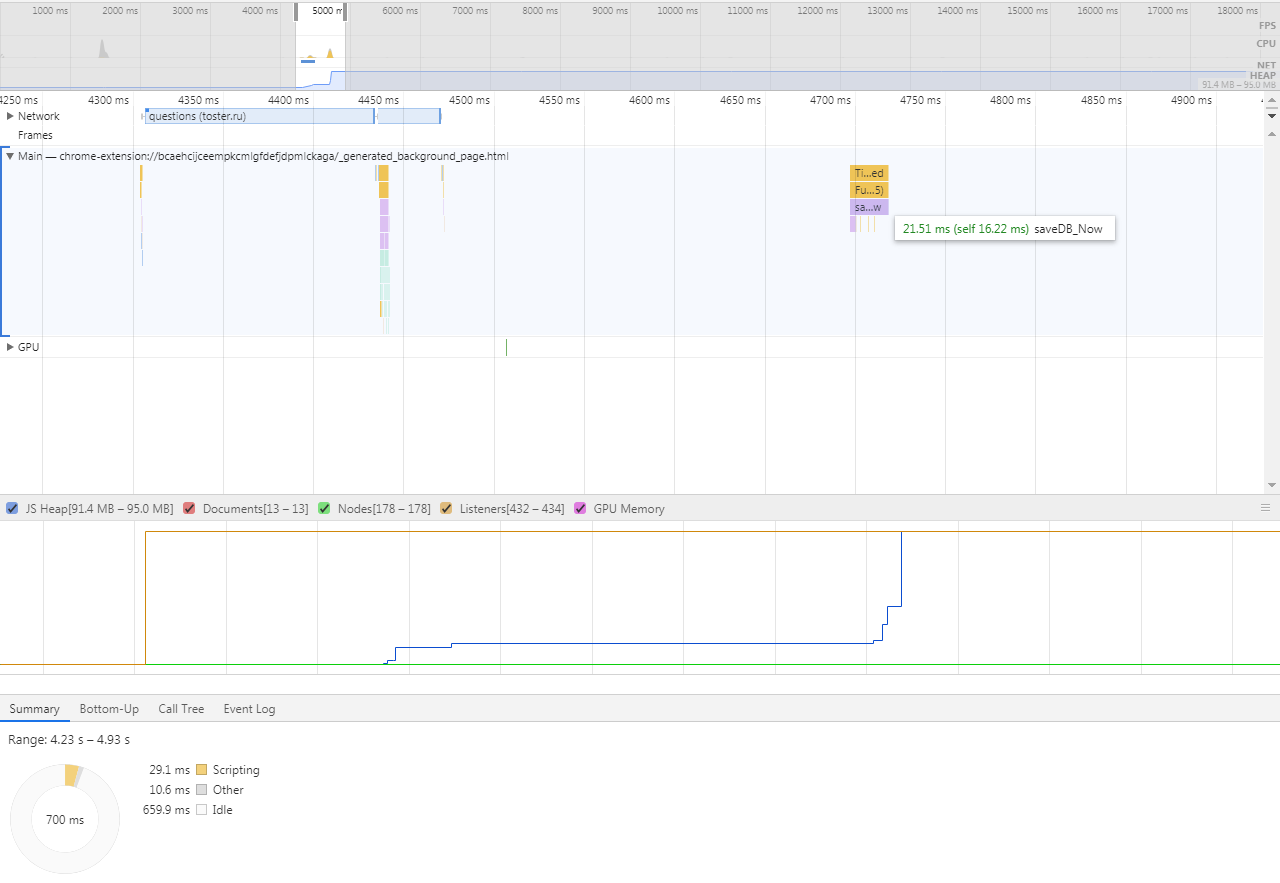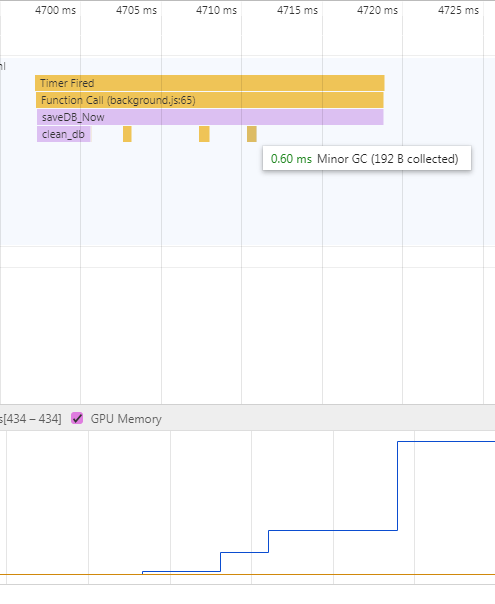Answer the question
In order to leave comments, you need to log in
What is the memory leak in the code?

const MAX_DB_TIMEOUT = 60000;
let saveDB_timer;
let db_saved_called;
function saveDB(no_pause) {
let now = (new Date()).getTime();
db_saved_called = db_saved_called || now;
if (saveDB_timer !== undefined) clearTimeout(saveDB_timer);
function saveDB_Now() {
//let check1 = performance.now();
for(let i=0;i<db_clean_steps.length;i++) {
clean_db(db_clean_steps[i]);
try {
localStorage.db = JSON.stringify(db);
break;
} catch(e) {
console.log("Can't save DB");
}
}
db_saved_called = undefined;
//let check2 = performance.now();
//console.log('DB_SAVED!', (check2-check1)+'мс');
}
if ((now - db_saved_called > MAX_DB_TIMEOUT) || no_pause) saveDB_Now();
else saveDB_timer = setTimeout(saveDB_Now,15000);
}const db_clean_steps = [7, 3, 2, 1, 0.5, 0.2];
function clean_db(timeout_days) {
const timeout = timeout_days *24*60*60*1000;
//remove pending status
for(let id in db.user) {
if (!db.user[id]) {
delete db.user[id];
continue;
}
delete db.user[id].solutions_pending;
delete db.user[id].karma_pending;
}
//remove users
let now = (new Date()).getTime();
for(let id in db.user) {
let user = db.user[id];
if (!(now - user.update_time < timeout)) delete db.user[id]; // n days
}
//remove questions
for(let id in db.question) {
let q = db.question[id];
//ignore subscribtions
if (q.sub) {
if (!(now - q.ut < 400 * 24 * 60 * 60000)) delete db.question[id]; // 1 year
continue;
}
//ut means update_time
if (!(now - q.ut < timeout)) delete db.question[id]; // n days
}
}
Answer the question
In order to leave comments, you need to log in
The problem turned out to be much deeper. Namely - in the V8 engine .
That is, it only applies to Chrome and Node js.
It took a long time to dig. And the problem has not yet been solved, we have to study this bug and get around it in all places of the program (and there are a lot of them).
There is not enough information in the question, for that I apologize.
And the profiler is difficult to use, since the GC cleans the memory with large delays. Charts are not to be trusted.
Didn't find what you were looking for?
Ask your questionAsk a Question
731 491 924 answers to any question